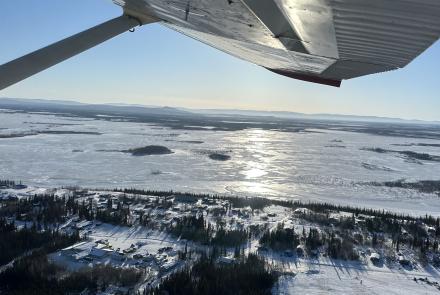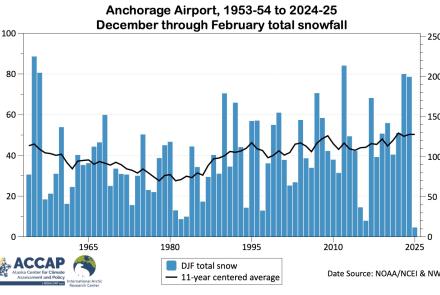Shortest Day--Shortest Night
Why, asks Mr. Jim Schneider of KUAC, is the shortest day longer than the shortest night?
Looking over sunrise-sunset times, he noticed that the shortest night (June 21) at Fairbanks is only 2 hours, 11 minutes long, but the shortest day (December 21) is 3 hours, 42 minutes.
Were it not for refraction of the sun's rays in the atmosphere, the shortest day would equal the shortest night at a particular latitude. Atmospheric refraction bends the rays so that they can pass over the horizon. Hence, the sun appears to rise before it actually reaches the horizon and it is still visible at night after it is actually below the horizon. Consequently, every day is longer than it would be if there were no refraction.



